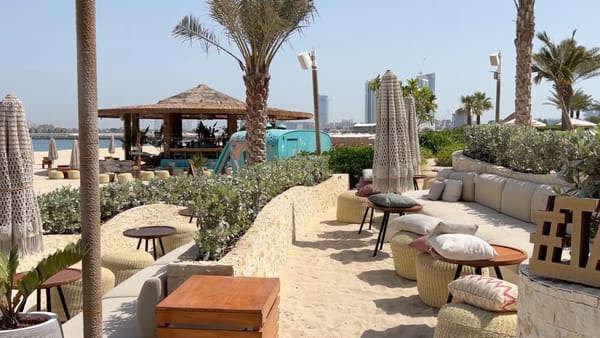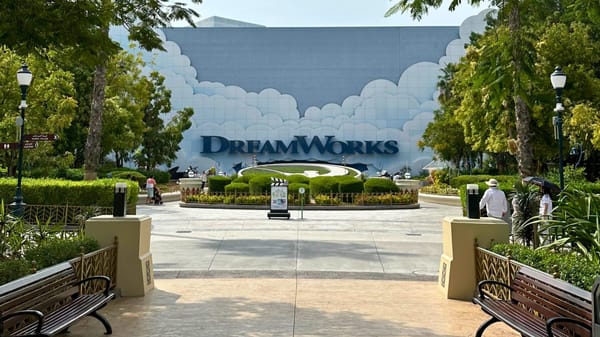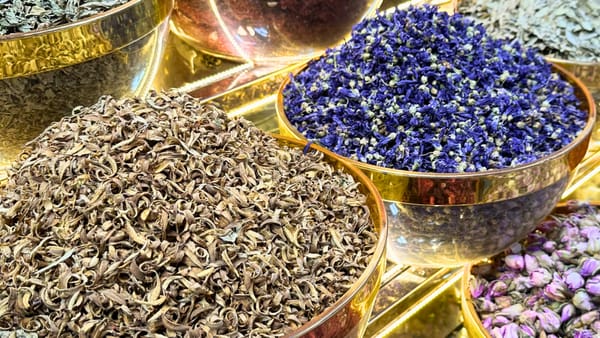Camel Racing in Dubai - Blending Tradition with Robotics

The modern UAE and its most coveted city, the city of gold, Dubai, is well-planned with beautiful landscapes and skyscrapers. However, there is a lot more to Dubai than meets the glancing eye. Whether you’re visiting the city on vacation or business, Camel Racing in Dubai is not to be missed.
History of Camel Racing in Dubai
Most people think of Dubai as the city with an array of luxury cars and an exuberant lifestyle, which is true in the sense; but there is more to explore here than glitz and glamour.
The journey of their people- the Arabs or Emiratis began as nomads or Bedouins, which translates to ‘desert dweller’ in Arabic. Their largest tribe was The Bani Yas who roamed the deserts of Abu Dhabi and Dubai back in the day.
Being in the desert, camels were an integral part of the tribe. They were herded not just for transport but for food, clothing and even entertainment; The Camel Race. Since then till today, Emiratis share the same bond with these majestic animals.
The history of camel racing can be dated back to over 100 years ago. Though back then it was just a sport that brought all tribes together, for entertainment and competition; it wasn’t monetised as much.
Later in 1971, Yester ruler, H.H Sheikh Zayed bin Sultan Al Nahyan decided to make proper racecourses for it. Today, there is a camel racecourse in all 7 emirates of the UAE. Furthermore, it has become a million-dollar business, turning it to the wealthiest traditional sport in the world.
Traditional Camel Racing
Camels can carry approx. 170- 270 kgs of weight on their backs. Though obviously, the more the pressure, the slower its movement. This is why traditionally, they chose children as jockeys.
With time they witnessed several accidents as most children could not control the speed of a camel, which could go from 40-65 kilometres an hour during a race. With the rising pressure from the children’s rights campaigners, UAE banned children from camel racing and also compensated 879 former child jockeys.
Camel Racing in Dubai with Robot Jockeys
After the ban of child jockeys in 2005, UAE decided to merge tradition with technology and invented an ingenious robot jockey which weighed between 2-4 kgs. This made the race more interesting as the playing field became equal as technically, all riders weighed the same.
The state of the art mechanical jockey had a drill motor that was operated with a remote controller. It had a walkie-talkie and an electronic whip attached to increase its speed. Each team would have a different coloured robot jockey which was usually mounted on the camel at the track before the race.
A Glimpse into Camel Racing in Dubai
An automated gate pulls down before the race and the camels are lined up by their handlers. Once ready on cue, the barriers are lifted, and the run begins. The owners of the camel would drive parallel to the race track in their SUVs instructing the camel through their walkie talkies and commanding it with a remote-controlled electronic whip, attached to the robot jockey. There would also be media cars shooting the event and anchors giving a live commentary of the game. Thousands of people attend, turning it to a popular tourist attraction that offers a glimpse of the Arabian culture.
Up to 14,000 race camels attend race festivals, to compete for luxury cars and millions of dollars in cash. Roughly, an average of 60 camels participates in a single race. Each event is categorised based on the age of the camel.
Though there would be Jumbo-trons covering the event and are broadcasted live on Dubai Racing Channel on Dubai TV, we’d still recommend watching it firsthand with a pair of binoculars for the game.
Owning a camel is a costly affair. The expenses to run a camel farm can go up to $200,000 a year, depending on the breed. Hence why its still considered a status symbol and prized possession.
Camel Race Courses in the UAE
We have compiled a list of famous racecourses spread across the 7 Emirates. Though the most popular ones are at Dubai and Abu Dhabi, we are taking it a step further for you by listing the prominent ones here, so in case you miss it in one destination, you have your options open. Entry fees for all races are free.
Dubai Camel Racing Club (DCRC) – Dubai
The Dubai Camel Racing Club (DCRC) is among the biggest camel tracks in UAE. Al Marmoum, Saif al Arab, Lahbab and Al Tahi are the names of the race tracks that come under DCRC. Al Marmoum being the largest amongst them.
There is a public stadium inside the DCRC from where you can view the start and finish line. Furthermore, the seating area also has TVs airing the footage live for a closer view.
Location
Distance from the city = 50kms
Al Wathba Camel Race Track – Abu Dhabi
This race track stretches around 12kms.
Location
Distance from the city = 45kms
- Al Maqam camel racing track – Al Ain, Abu Dhabi
Distance from the city: 148kms
Al Sawan Camel Race Track – Ras Al Khaimah
Al Sawan Race track measure approx. 10kms. The camel races are usually held early Friday mornings from 6:30 to 9:30 am from October throughout the winter season.
Location
Distance from the city = 20kms
Al Dhaid Camel Race Track- Sharjah
This Camel Race Track holds races in the winter months, usually over the weekends.
Location
Distance from the city = 60kms east of Sharjah City, via Sharjah – Al Dhaid Road (E88)
Al Tallah Camel Racecourse – Ajman
Al Tallah Camel Racecourse usually hosts races every weekend during the racing season from October to March.
Location
Distance from the city = 10kms
Al-Lebsa Camel Race Track – Umm Al-Quwain
The racetrack at Al-Lebsa is situated just off the road to Falaj Al Mualla. Hosts races almost every weekend during the racing season of October to March.
Location
Distance from the city = 28kms
Camel Racing During the Pandemic
The racing season is generally from September to April. However, much as the other events over the world, camel racing was also cut short due to the pandemic. The United Arab Emirates (UAE) announced the resumption of camel racing from July post the coronavirus pandemic that suspended it for five-months. The last race that was conducted before the crisis was on March 21st at the Al Wathbah track, Abu Dhabi.
To ensure safety for all during the pandemic, the authorities have issued guidelines:
- Face masks and gloves have been made mandatory for all.
- Only 3 people are allowed in a private car.
- To limit the time handlers gather at the track, tracks will open only at 6.30am, and camels are not to leave farms before 6 am.
- There should be a 5-meter distance between people maintained in the waiting area.
- Gathering at race tracks is also prohibited.
- The handlers must mount the Robot Jockeys before they leave the farm and not at the race track.
The UAE Camel Racing Federation has announced to issue fines to owners for non-compliance of the rules. They are trying their best to not compromise on safety and the centuries-old tradition, which is commendable.
The next leg begins with two festivals- The Dubai Crown Prince Camel Festival, from January 23rd to February 4th, 2021, and the circuits grand finale, Al Marmoum Heritage Festival, from March 28th to April 8th, 2021.
Dubai Camel Racing Club Schedule
The dates and time of upcoming races and events are attached below—source: Official DRDC website.


What is the Largest Camel Race Track in Dubai?
Al Marmoum, which belongs to the Dubai Camel Race Club is the largest camel racing track in Dubai.
Conclusion
The Arabian Camel Race is the best example of how best to merge tradition with modern technology. The UAE government is so rooted in their culture, and yet taking a step to stop what was wrong and to invent Robot Jockeys to serve the purpose is commendable and inspiring.
The event is energetic and definitely something to be added to the bucket list if you visit the Middle East. Generally, the audience can have a personal interaction with the camels after the race. However, post pandemic, the possibility is unlikely.
Overall, Camel Racing in Dubai is one fantastic thing to do whilst away on business or travelling with the family.
Thank you for taking the time to read about Camel Racing in Dubai. For more information and tips on Dubai follow my blog here. You can also follow me on Pinterest and Youtube.



